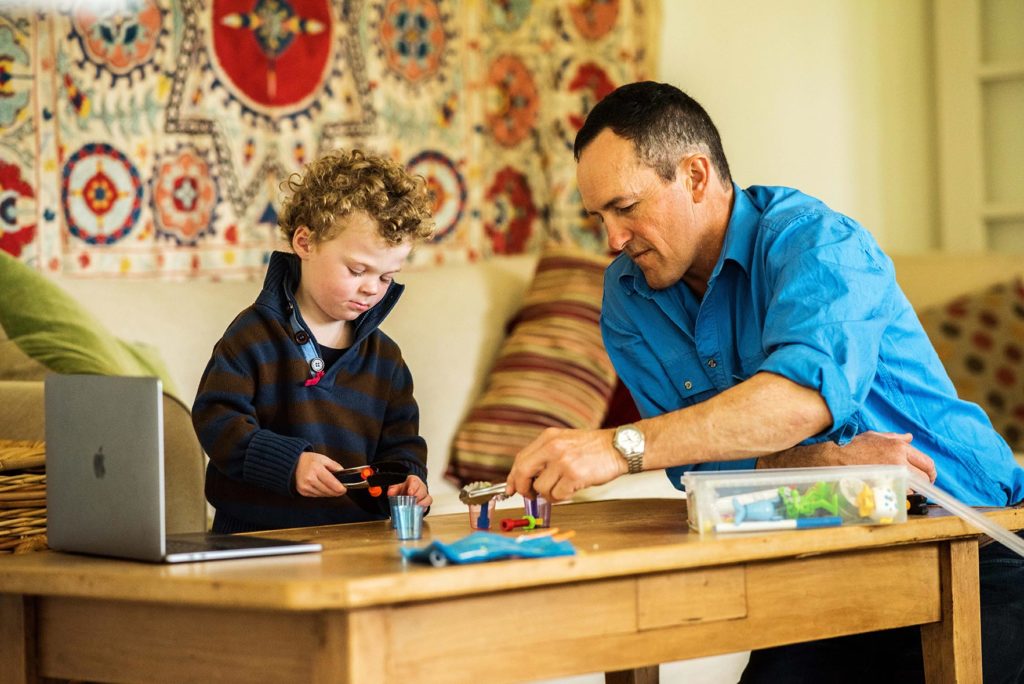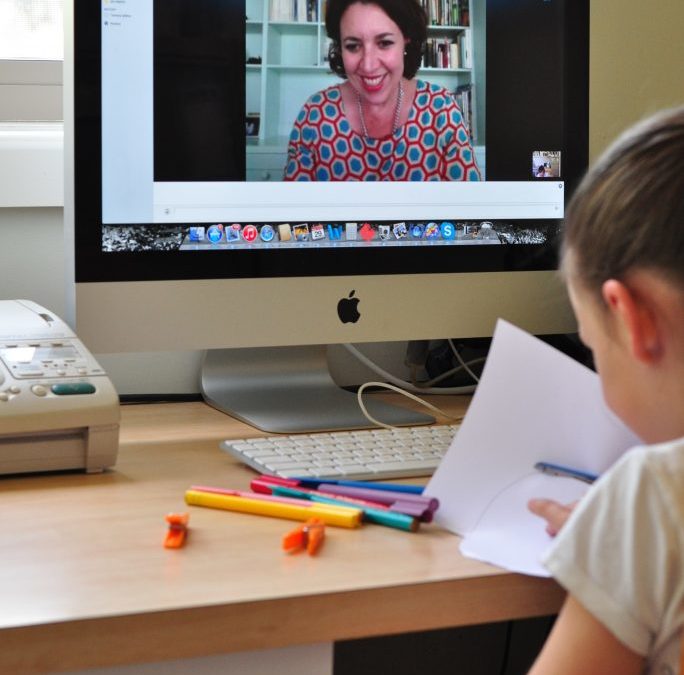Sometimes it can feel like your family is navigating a minefield of emotions…does this sound familiar? Anger, frustration, and outbursts can leave everyone feeling overwhelmed. It’s important to remember that these big emotions are part of being human! The key is learning how to manage them, both for you and your children.
This article offers practical, family-focused techniques to help you understand anger, recognise its triggers, and express emotions constructively. We’ll cover strategies for both parents and kids. Ready to guide your family toward greater emotional wellbeing? Let’s get started.
Key Takeaways
- Recognising the triggers of anger and practising empathy can help manage anger effectively and prevent it from escalating.
- Immediate techniques like breathing, progressive muscle relaxation, and visualisation can help create calm during moments of anger.
- Long-term strategies are essential for maintaining emotional balance and managing anger.
Top Strategies for Managing Anger and Big Emotions
Anger, one of the six basic emotions identified by researcher Paul Ekman, is a typical and healthy emotion that conveys a message of being upset, unjustly treated, or threatened. However, effective anger management is crucial in preventing it from spiralling out of control and damaging relationships and health.
Psychologist Daniel Goleman describes emotions as impulses to act, highlighting their essential role in handling life’s challenges. For children, these impulses can be especially strong, and understanding them is key for parents.
One of the most effective ways to manage anger is to understand its triggers and practice empathy. Recognising what sets off your anger allows you to proactively avoid these situations or prepare to handle them better when they arise. On the other hand, empathy helps everyone see things from another person’s perspective, reducing the intensity of your anger and fostering better relationships within the family unit.
Beneficial outcomes can be achieved by expressing anger in a controlled manner. Contrary to the belief that anger cannot be controlled, cognitive-behavioural interventions have proven effective in helping both children and adults change their thought patterns and behaviours. The main aim of anger management is to:
- Recognise the underlying message of the emotion.
- What is your child really trying to say through their anger?
- Find constructive ways to express it without letting it escalate out of control.
- This is important for both parents and kids!
- Develop healthy coping mechanisms to manage feelings of anger.
- Let’s find strategies that work for your whole family
Another great strategy involves taking action to channel anger and restore calm. Whether it’s setting a timer before responding to avoid rash decisions or changing your routine, these practical tips can make a significant difference in your household.
Introduction
Anger is a natural reaction to certain situations, but when it spirals out of control, it can lead to significant problems in our families. In this article, we provide strategies for managing anger, which can assist you and your children in responding thoughtfully instead of reacting impulsively. Whether it’s an argument with a family member or a frustrating moment at school or home, understanding how to control your anger is crucial for maintaining healthy family relationships and personal wellbeing.
The strategies discussed here are designed to help you and your children manage anger in both familiar and unfamiliar settings. From immediate techniques to calm down to long-term strategies and the importance of seeking professional help, this comprehensive guide will equip you and your family with the necessary tools. By focusing on these strategies, you can transform your children’s anger into positive actions and maintain control over their emotions.
It’s important to recognise that anger management is about understanding and healthily expressing the underlying causes. This guide will show you how to defuse, reduce, or redirect your anger effectively, ensuring it does not negatively impact your family relationships or health.
Understanding Anger and Big Emotions
Anger is a normal, healthy emotion that conveys a message of being upset, unjustly treated, or threatened. However, it’s essential to understand that anger can be positive and useful if expressed appropriately. Anger is ingrained in our brains as a protective mechanism, but when unchecked, it can lead to significant problems in our personal lives.
Acknowledging the underlying emotions that fuel your child’s anger can help you get to the root of the problem. Understanding these underlying causes can lead to more effective anger management, whether it’s hurt, stress, or another emotion. Recognising and addressing these triggers, you can take appropriate actions to manage anger.
The Effects of Uncontrolled Anger
Uncontrolled anger has the potential to cause significant damage to both personal relationships and one’s overall health. Finding healthy ways to manage and express anger is important for children to avoid these negative consequences. When anger is not managed properly, it can lead to aggressive behaviour that can damage relationships, end friendships, and cause additional stress.
Moreover, unmanaged anger can have severe implications for your childs physical and mental health. Chronic anger can lead to:
- Anxiety
- High blood pressure
- Headaches
- Even escalate into violence
The emotional and physiological responses to anger triggers can make rational decision-making difficult, further compounding the problem.
Recognising Physical Warning Signs
It’s vital to recognise the physical warning signs of anger, as they allow for immediate action and prevent escalation. Common physical signs include a faster heart rate, feeling hot in the face, and clenching fists.
By identifying these signs early, you can take steps to calm down and avoid losing control.
Immediate Techniques to Calm Down
Immediate techniques to calm down can be a game-changer when anger strikes. Here are some techniques to try:
- Practising relaxation skills, such as deep breathing or progressive muscle relaxation, can help manage your temper in the moment.
- Taking a timeout during stressful times lets you step away from the triggering situation and return with a clearer mind.
- Distracting yourself with a new activity can also help shift your focus and allow your body and brain to calm down.
Visualisation techniques can be particularly effective. Here are some strategies to help you calm down:
- Visualise a stop sign or count down from 10 to slow your heart rate and subside anger.
- Create a ‘Calm-Down’ kit with items that engage all your senses, such as scented hand lotion or serene pictures.
- Laughing and rehearsing what you are going to say can diffuse a bad mood and prevent an outburst.
By understanding and practising these relaxation techniques, you can maintain calm and control your anger during stressful situations. Integrating these strategies into your routine allows you to manage anger more effectively and maintain emotional balance.
Breathing Exercises
A simple yet powerful way to relieve tension and promote relaxation is through breathing exercises. Focusing on your breath whenever your mind wanders can help anchor you back to the present moment and control your anger.
Progressive Muscle Relaxation
Progressive muscle relaxation is another effective technique to reduce stress. This method involves tensing and then slowly relaxing various muscle groups in the body, one at a time. By focusing on the physical sensations of tension and relaxation, you can feel calmer and more in control of your anger.
Visualisation Techniques
Visualisation techniques can help you find calm amidst anger by practising mental imagery. Here are some steps to follow:
- Imagine a peaceful scene, such as a beach or forest, to escape from stress mentally.
- Engage your senses by noticing sights, sounds, smells, or textures around you.
- Ground yourself in the present moment and gain a different perspective on the situation.
By following these steps, you can effectively use visualisation techniques to find calm amidst anger for you and your children.
Long-Term Strategies for Managing Anger
Developing a comprehensive anger management control plan is vital for achieving lasting results in children. This plan can help you identify triggers, develop coping strategies, and monitor your child’s progress over time.
Regular exercise, for instance, can significantly reduce anger in children by promoting physical health and releasing endorphins that improve mood.
Identifying triggers is a crucial step in maintaining emotional balance. These can include:
- Specific activities
- Times of day
- People
- Places
- Situations
By recognising these triggers, you can plan and practice anger management techniques beforehand; making avoiding or handling these situations easier.
Cognitive restructuring involves changing negative thought patterns that lead to anger. Techniques like using thought records to track and challenge negative thoughts and reframing them into more positive and realistic perspectives can be highly effective for children. This approach is based on the notion that thoughts, feelings, and behaviours are all connected, and by altering thinking, you can better manage your child’s anger.
Identify Triggers
Identifying triggers can help you plan and manage stress better, allowing you to practise anger management techniques beforehand. Common triggers include feeling wronged or mistreated, past traumatic events, or feelings of shame.
Keeping a daily mood log and writing down your feelings can help you become more aware of these triggers and develop practical solutions to address them.
Cognitive Restructuring
Cognitive restructuring involves changing thought patterns that lead to negative emotions. You can reframe negative thoughts into more positive and realistic perspectives by identifying and challenging negative thoughts. This approach can help you manage anger by focusing on the facts and using calming mantras to reduce stress and improve your overall emotional well-being.
Regular Exercise
Engaging in regular exercise can significantly reduce stress and improve mood, aiding in anger management. Physical activities like a brisk walk or vigorous exercise can help burn off energy and refocus the mind, making it easier to manage anger and maintain emotional balance.
Healthy Ways to Express Anger
Expelling anger in healthy ways is essential for maintaining emotional balance and reducing stress. Reducing tension during conflicts can be achieved by using effective communication skills, such as ‘I’ statements and thinking before speaking.
Journaling can provide a structured way to understand and process big emotions, helping you gain a clearer perspective on the underlying causes of your anger. Creative outlets like painting, gardening, or writing can transform negative emotions into constructive energy, providing a positive way to release and manage anger.
Effective Communication Skills
Using ‘I’ statements instead of blame can help reduce conflict tension by fostering respectful communication. Here are some tips to keep in mind:
- Express your concerns calmly.
- Use ‘I’ statements to express how you feel.
- Think before speaking to avoid saying something you might regret in the heat of the moment.
By following these tips, you can navigate conflicts more effectively and maintain healthy relationships.
Journaling
Journaling is a powerful tool that can help manage big emotions by providing a structured way to understand and process them. By writing down your thoughts, you can process underlying emotions that contribute to anger, allowing you to get to the root cause of your feelings.
This positive outlet for your thoughts and emotions can reduce stress and provide a sense of relief.
Creative Outlets
Engaging in creative outlets can transform negative emotions into constructive energy. Activities like painting, drawing, or gardening can facilitate emotional release and provide a sense of relief. By channelling your emotions positively through creative activities, you can find constructive ways to handle your feelings and integrate these outlets into your daily routine to manage anger effectively.
Seeking Professional Help
If anger escalates into aggression or outbursts, it’s imperative to either find healthy ways to cope or consider seeking further guidance from a doctor or therapist. When anger remains out of control despite practising various techniques, seeking professional help can be an important step toward gaining control. Professional interventions such as therapy or anger management classes can provide the necessary support and strategies to manage anger effectively.
Talking to a trusted friend or psychologist can also provide perspective on anger and is a valuable form of support. If depression, anxiety or neurodivergence are contributing to anger issues, a mental health professional can diagnose and treat these underlying conditions, further aiding in your overall emotional wellbeing.
Therapy Connect Services
Therapy Connect offers:
- Faster access to highly qualified therapists, regardless of your location.
- Tailored programs designed based on individual needs.
- Practitioners who work across a range of specialties, including speech therapy, dietetics, and psychology.
- An approach backed by research partnerships with the University of Sydney and the University of Queensland, ensuring evidence-based treatment.
As Australia’s leading NDIS online therapy provider, Therapy Connect provides tailored, evidence-based therapy services designed for online delivery, focusing on NDIS participants, including children and adolescents with autism and developmental delays.
Self-Care Practices to Stay Calm
Regular physical activity, maintaining a routine, and practising mindfulness form the cornerstone of self-care practices that effectively reduce stress and manage anger. With scents like lavender and chamomile, aromatherapy can decrease anxiety and improve sleep, further aiding in emotional regulation. It’s also essential to be mindful of caffeine consumption, as overconsumption may worsen anxiety and harm sleep, increasing stress symptoms.
Practising gratitude can help neutralise anger and turn around the situation by focusing on the positive aspects of life. Ensuring you get seven to nine hours of good quality sleep is recommended for emotional regulation, as lack of sleep exacerbates negative thoughts and leaves individuals feeling agitated and short-tempered.
A balanced diet plays a significant role in managing stress and emotions. Here are some key points to consider:
- Diets high in ultra-processed foods and added sugar are linked to higher perceived stress levels.
- However, a diet rich in fruits, vegetables, and whole grains positively affects mood and energy levels.
- Staying hydrated by drinking enough water throughout the day is essential for optimal brain function and mood stabilisation.
Mindfulness and Meditation
Mindfulness practices such as meditation can anchor you to the present moment, reducing stress. Consistent meditation, even for short periods, can boost mood and decrease symptoms of stress. Mindfulness meditation involves observing thoughts and feelings without judgement, helping to maintain present-moment awareness.
To cultivate present-moment awareness, set aside time daily for mindfulness practices, such as while taking a walk or doing household chores.
Adequate Sleep
Consistent sleep routines are important to regulate emotions and maintain overall mental health. Lack of sleep exacerbates negative thoughts and leaves individuals feeling agitated and short-tempered, making it harder to manage anger.
Balanced Diet
A balanced diet is crucial for maintaining a healthy emotion and reducing stress. Here are some tips for a healthy diet:
- Include plenty of fruits and vegetables in your meals.
- Choose whole grains over refined grains.
- Limit your intake of ultra-processed foods and added sugar.
- Be mindful of your caffeine intake and avoid consuming too much.
Following these tips can positively affect your mood and energy levels and help reduce stress.
Ensuring you stay hydrated by drinking enough water throughout the day is also essential for optimal brain function and mood stabilisation.
Summary
Managing anger and big emotions is a superpower that every family can master, leading to stronger bonds, healthier kids, and happier homes. By understanding why we get angry and learning simple tricks to cool down, we can turn those fiery feelings into something positive.
Think of it like a volcano: sometimes, anger bubbles up and erupts, but with the right tools, we can learn to manage those eruptions and keep things calm. Deep breaths, relaxing our muscles, and imagining peaceful places are like magic spells to calm the volcano down. And by figuring out what triggers those angry outbursts, like a lost toy or a disagreement with a sibling, we can be prepared and avoid explosions in the future.
But managing anger isn’t just about staying calm in the moment. It’s also about finding healthy ways to let those big emotions out. Talking calmly, writing in a journal, or even painting can be great ways for kids to express themselves without hurting anyone. And when things get really tough, it’s okay to ask for help from a grown-up or a therapist.
Remember, superheroes take care of themselves too! Regular exercise, getting enough sleep, and eating healthy foods are like charging up your superpowers, making it easier to handle those fiery feelings. And don’t forget the power of mindfulness – taking a moment to focus on the present can work wonders for the whole family.
Anger management isn’t just for grown-ups. With the right tools and support, kids can learn to be the heroes of their own emotions, creating a happier and more peaceful family life.
Frequently Asked Questions
How can I recognise the physical warning signs of anger?
Recognising physical signs of anger, such as a faster heart rate, feeling hot in the face, and clenching fists, can help you take steps to calm down and prevent escalation. Attention to these warning signs can be crucial in effectively managing your emotions.
What are some immediate techniques to calm down when I feel angry?
When feeling angry, practise deep breathing, progressive muscle relaxation, and visualisation techniques to help you stay calm and control your anger at the moment. These methods can be effective in managing anger during stressful situations.
How can I identify triggers that cause my anger?
To identify triggers that cause your anger, start by recognising specific activities, times of day, people, places, or situations that trigger irritable or angry feelings. Keeping a daily mood log and writing down your feelings can help you become more aware of these triggers.
What are the benefits of seeking professional help for anger management?
Seeking professional help for anger management can provide tailored strategies and coping mechanisms to manage anger effectively, such as through cognitive behavioural therapy (CBT) and counselling, which can be more effective than suppressing anger.
How can self-care practices help in managing anger?
Taking care of yourself through regular exercise, mindfulness, adequate sleep, and a balanced diet can significantly reduce stress levels, promoting emotional balance and helping effectively manage anger.




